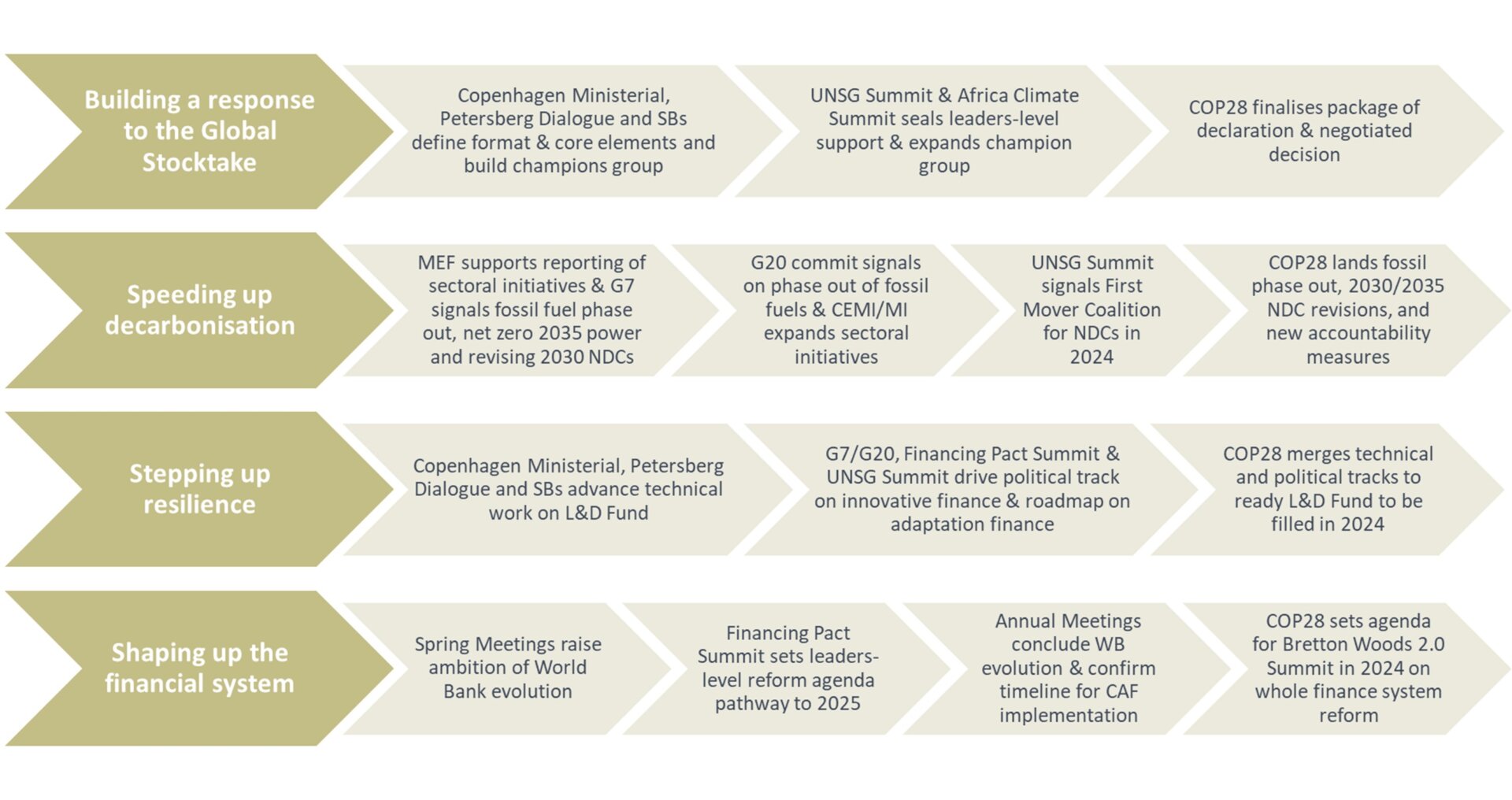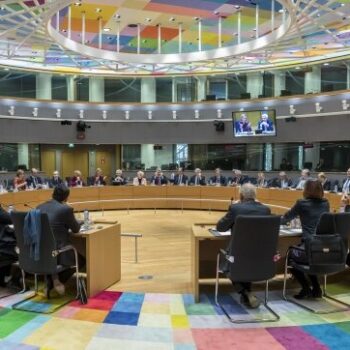This week’s Copenhagen Climate Ministerial is the first major climate meeting of 2023. It is a critical chance to define the expectations for how they will deliver a radical “course correction” in global climate action this year.
Ministers meet in the shadow of the new Intergovernmental Panel on Climate Change (IPCC) report, released on Monday (20th March). The report summarises the pressure and the opportunity ministers face. Yes, the world is warming dangerously out of control. But rapid action to stop it can reap enormous economic and societal benefits.
Governments will likely echo those messages again at COP28. Among other important decisions, they’ll decide how to respond to the first ever Global Stocktake (GST) – a major assessment of the progress towards meeting the goals of the Paris Agreement. Spoiler alert: we’re far, far off track.
This is why both the UAE COP28 President Dr Sultan Al Jaber and UN Climate Change Executive Secretary Simon Stiell have called for the response to the Global Stocktake year to “course correct” our current path.
The ministerial is an important opportunity to set out an ambitious vision for the decisions that governments will need to take at COP28 to accelerate climate action in light of the stark picture the IPCC analysis paints.
It’s also a chance to set in motion a drumbeat of milestones to start that acceleration ahead of COP28.
A course correction needs to focus on three gaps: speeding up decarbonisation, stepping up resilience, and shaping up the financial system.
- COP28 can agree a declaration to phase out fossil fuels. Over 80 countries backed a failed attempt at securing this at COP27. Agreeing this declaration at a COP led by an oil and gas CEO would send a strong signal of government commitment to the transformation needed. EU diplomats have already stated their intention to push countries to phase out fossil fuels ahead of COP28.
- Governments can adopt policies that speed up their sector transformation pathways. Continued pressure for new 2030 climate targets is important – and governments need to agree at COP28 how to close the gap between country targets for 2030 and the 43% cut needed globally for 1.5C. But real emissions cuts matter even more. That means flipping the investment ratio in favour of renewables over fossils and fleshing out the details behind sectoral targets to slash land, methane, and fossil emissions, and curb deforestation.
- Governments, business, and cities can set up clear accountability mechanisms to keep climate promises on track. The buzzword of COP27 was implementation. New measures can ensure governments, companies, and alliances – like the Global Methane Pledge – are accountable to their pledges.
- COP27 agreed the Loss and Damage Fund. This year, the diplomatic task is to bring it into existence. Fundamental questions need answers: where does it sit, how does it work, who funds it and who benefits from it?
- Governments must find real money to fill an otherwise empty pot. New sources of finance for loss and damage could include taxes on fossil fuels, finance, aviation, and shipping – as well as a scaled-up role for international financial institutions like the World Bank, IMF, and multilateral development banks (MDBs). Pilot schemes would be a good first step.
- Plugging the gap in adaptation finance remains critical too. Developed countries promised to double levels by 2025. A far greater sum is actually needed. New partnerships can raise funds and improve access to adaptation funding right now. COP28 decisions on how to track the Global Goal on Adaptation can help drive more and better funding longer term.
- Declarations at COP28 and diplomacy beforehand can align governments around an agenda to evolve how our international financial institutions serve Climate and Development objectives. As we approach the 80th Anniversary of the Bretton Woods Conference next year, COP28 is a key moment for showing commitment to ensuring the finance system delivers for the challenges of today. The GST is an opportunity to assess progress and make recommendations that can help ensure we have the right financial set-up for climate action for the rest of the critical decade.
- Climate finance discussions at COP28 are an important chance to look at the bigger picture. Existing finance mechanisms haven’t worked to even deliver the $100bn goal yet. Negotiations on aligning finance flows with the Paris Agreement and setting a post-2025 climate finance goal are pivotal ways to get finance ministries and global finance rules, regulations, and institutions on board with the mission to scale-up climate finance.
- Action before COP28 can start growing the pot and improving the accessibility of funding for climate action. This includes bridging from individual JET-Ps to more regional mechanisms; enhancing access to concessional financing for climate vulnerable countries; re-channelling more Special Drawing Rights into both the IMF’s Resilience and Sustainability Trust and to MDBs; and advancing the recommendations to boost the financial firepower of MDBs.
The Copenhagen Ministerial can fire the starting gun on a diplomatic relay race:

For governments to rise to the occasion across these moments, the Copenhagen Climate Ministerial will need to set out the task ahead and encourage governments to take on the challenge of transformative course correction by COP28.


